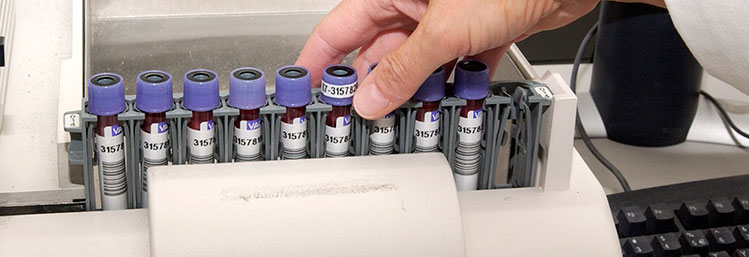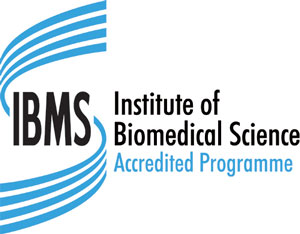
Applied Biomedical Science
BSc (Hons)
- Typical offer for 2025
- Duration
- UCAS code
- Start date
- Location
Suitable for applications.
Now I've graduated I have secured a role as a Biomedical Scientist in Pathology at Wythenshawe Hospital in Manchester, and I plan to start my MSc Physician Associate studies here in September.
Teaching, learning and assessment
A wide range of teaching methods are used to deliver the programme, which include a combination of blended learning undertaken mainly on campus.
To accommodate both the academic requirements and work-based training, the programme will require extended periods of study in years 1 and 2, beyond the standard 30 weeks.
All students have three semesters of study, with semester 3 being the work-based learning opportunity.
A number of self-directed components of Work Based Learning (WBL) is carried out whilst working in the placement laboratory, alongside the development of the Institute’s registration training portfolio.
Study support
Our comprehensive support services will help you to achieve your full potential – both academically and personally.
We provide all you need to make the very best of your time with us, and successfully progress through your studies and on into the world of graduate employment.
Our support services include:
- Personal tutors
- Disability services
- Counselling services
- MyBradford student support centres
- The Students’ Union
- Chaplaincy and faith advisers
- An on-campus nursery
- Halls wardens
We have well-stocked libraries and excellent IT facilities across campus. These facilities are open 24 hours a day during term time, meaning you’ll always find a place to get things done on campus.
Our Academic Skills Advice Service will work with you to develop your academic, interpersonal and transferable skills.
Research
Terms and conditions of study
The University has a set of terms and conditions for all students accepting an offer to study on a course here at Bradford. This is called The Student Contract. This document sets out the Terms and Conditions which apply when you accept an offer of a place on a programme of study at the University of Bradford.
View our Student Contract for further details.
Transparency statement
Information about this programme and its modules has been published in advance of the academic year to which it applies. Every effort has been made to ensure that the information is accurate at the time of publication, but changes may occur given the interval between publishing and commencement of teaching. Any change which impacts the terms and conditions of an applicant’s offer will be communicated to them.


